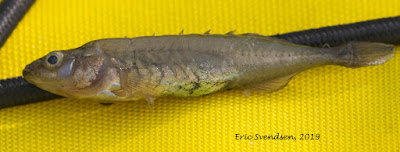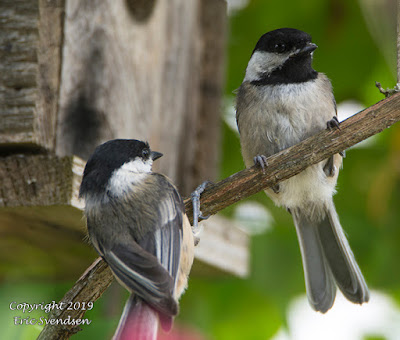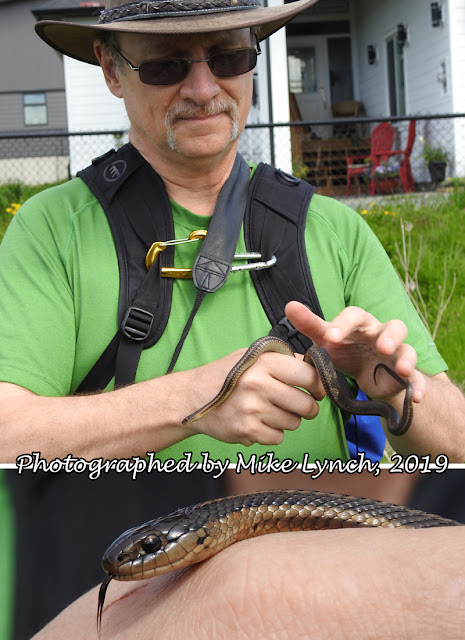Summer kill and winter kill: We're destroying our lakes.
 |
| A stickleback that died because of low oxygen conditions from summer kill. |
I found this little guy floating on the top of an Alberta lake. One by itself would not be an issue, but there were dozens of them, all within a very small area. I am sure there would have been many hundreds if I took the time to peruse more of the shallows. They all died at about the same time, not from age or because they reproduced, but because of something called summer kill.
A lake has a natural cycle of nutrient flow. Those nutrients are taken up by plants which are then passed along the food chain. Nutrients are usually very limited, especially nitrogen and phosphorus, which are hard to obtain either because of its limited presence (phosphorous) or its unavailable nature (nitrogen in the air is not directly useable by plants). However, we come along and fertilize our crops and let livestock pollute the streams feeding lakes. We also send our own effluence directly into water bodies instead of properly dealing with it. In all of this, a tremendous amount of nutrients are added to the aquatic ecosystem which normally is not available. As temperatures warm in spring into summer there is a boon of plant growth.
Algae and aquatic plants produce oxygen in the day, but they use oxygen at night when there is no light energy available. With the massive amount of plants, especially near the shoreline, the oxygen gets used up. Creatures such as the stickleback, which are sensitive to low oxygen levels, can no longer breathe. The result is a massive die-off we call summer kill.
Winter kill is similar, except that all these plants which have grown over the summer start to decompose under the ice and snow. Some oxygen is produced by those plants that survive, but the rest begins to rot. Bacteria cultures abound and start taking up oxygen. Massive summer plant growth is often met with a terrible loss of fish species in the winter because of this lack of oxygen. The surface is not available for oxygen to dissolve into the water, and plants only produce a limited amount because of the reduced light and cold temperatures. This only happens in lakes where humans have interfered with nutrient levels.
I have worked for the Alberta Fish and Wildlife on occasion and have been involved in fish transfer to lakes that have lost all of their fish stock from winter kill. Clearly, we have to do a better job of protecting our rivers and lakes. Keep livestock from around waterways. Properly dispose of human waste. Don't use soaps with phosphates in them. Use limited amount of fertilizer for crops. These things will all have a positive impact on the health of our freshwater resources.
Thanks for reading. www.ericspix.com


Comments
Post a Comment